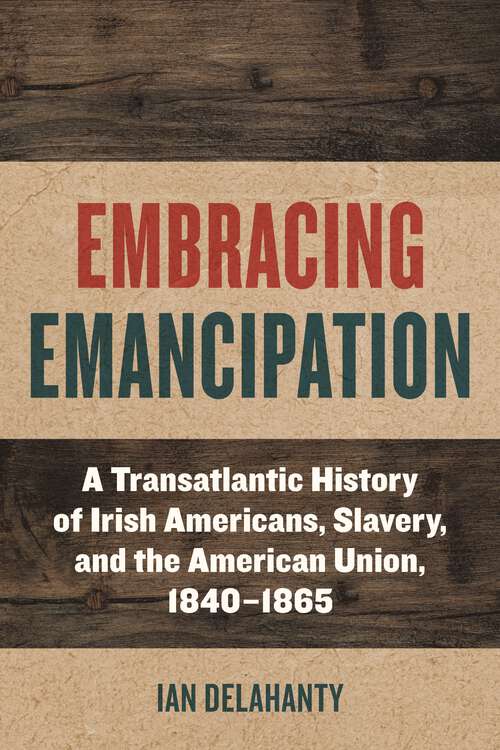
Embracing Emancipation: A Transatlantic History of Irish Americans, Slavery, and the American Union, 1840-1865 (Reconstructing America)
Etats-Unis (histoire), Politique et gouvernement, Essais et documents généraux
Audio avec voix de synthèse, Braille automatisé
Résumé
WINNER, 2024 LAWRENCE J. McCAFFREY PRIZE FOR BEST BOOK ON IRISH AMERICAChallenges conventional narratives of the Civil War era that emphasize Irish Americans’ unceasing opposition to Black freedomEmbracing Emancipation tackles a perennial question in scholarship on the Civil War era:… Why did Irish Americans, who claimed to have been oppressed in Ireland, so vehemently opposed the antislavery movement in the United States? Challenging conventional answers to this question that focus on the cultural, political, and economic circumstances of the Irish in America, Embracing Emancipation locates the origins of Irish American opposition to antislavery in famine-era Ireland. There, a distinctively Irish critique of abolitionism emerged during the 1840s, one that was adopted and adapted by Irish Americans during the sectional crisis. The Irish critique of abolitionism meshed with Irish Americans’ belief that the American Union would uplift Irish people on both sides of the Atlantic—if only it could be saved from the forces of disunion.Whereas conventional accounts of the Civil War itself emphasize Irish immigrants’ involvement in the New York City draft riots as a brutal coda to their unflinching opposition to emancipation, Delahanty uncovers a history of Irish Americans who embraced emancipation. Irish American soldiers realized that aiding Black southerners’ attempts at self-liberation would help to subdue the Confederate rebellion. Wartime developments in the United States and Ireland affirmed Irish American Unionists’ belief that the perpetuity of their adopted country was vital to the economic and political prospects of current and future immigrants and to their hopes for Ireland’s independence. Even as some Irish immigrants evinced their disdain for emancipation by lashing out against Union authorities and African Americans in northern cities, many others argued that their transatlantic interests in restoring the Union now aligned with slavery’s demise. While myriad Irish Americans ultimately abandoned their hostility to antislavery, their backgrounds in and continuously renewed connections with Ireland remained consistent influences on how the Irish in America took part in debate over the future of American slavery.